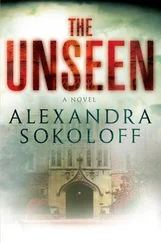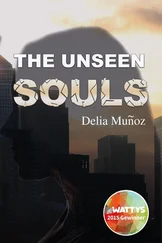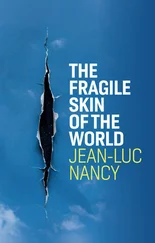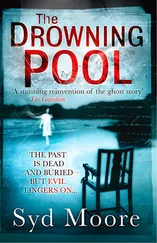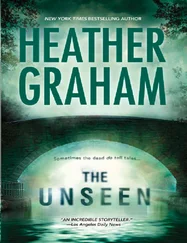The waitress returned, delivered his coffee; and then, perhaps sensing the gravity of the moment, departed swiftly once again.
“She’s keeping the house, too,” said Gregory.
“No,” said Ada.
“Yup,” said Gregory. “Mom’s house. I’ve got half my stuff in my car already. Mostly old gear and cables and stuff, antiques.”
“Where are you moving?”
“Some new apartment building in Cambridge,” he said. “With a bunch of college kids. Can you believe it?”
“When do you have to leave?” Ada asked.
He shrugged again, ripped off more bread. He was clutching the crust of it in his hand too firmly. It was disintegrating in his grip. “Soon as possible,” he said. “I’m already paying rent at the new place. We’ve been separated for a year already, and she’s at her new boyfriend’s now most of the time, anyway. They’ll probably move into the house together as soon as I’m gone.”
They sat in silence, briefly, until at last the waitress returned to take their order.
“Two scrambled eggs,” said Gregory.
“Nothing, thanks,” said Ada.
Ada sipped her tea. She pictured Liston’s house and David’s house, too, sitting a few lots apart on Shawmut Way. Soon she would know nobody who lived there, and the thought made her feel hollow. For as little as she saw Gregory, she still took comfort in the thought of him living on their old street, bearing inside him the story of his mother, of David, of Ada. It connected her, in some intangible way, to her past.
He stared down at the table. He looked incredibly forlorn.
“Tri-Tech’s failing,” she said, abruptly. “I wouldn’t be surprised if they folded in a year.” It was true, and it seemed right to tell him. A fair trade, a secret for a secret.
“On top of that,” she continued, “I think they might be edging me out. I was supposed to be leading a meeting right now that I was disinvited to this morning.” It was almost funny, as she told it to Gregory: it was a relief to say it. She felt the deep absurdity of it welling up inside her, softening its edges, lessening the blow of having wasted most of her professional life to date on a company that was fundamentally unsound, subject to the ignoble whims of an egomaniacal leader. She was working for an outfit that prized money over ideas. David, she knew, would have predicted a different future for her: and this was the thought that needled her, that pierced her sometimes unexpectedly as she was driving to work each day. This was the guilty whispering voice that kept her up at night.
“I’m thinking of quitting,” she said.
“Oh, yeah?” he asked. “I guess we’re both screwed.” And, for the first time, he smiled.
Gregory reached into the inner pocket of his overcoat then, and from it he produced an object. Silently, he offered it to her.
It was the original floppy disk that David had given her twenty-six years ago. It was lost; she had thought that it was lost. That Liston had donated the dictionary in which it had been housed.
“My God,” said Ada, and instinctively she reached for it, as if reaching for her father.
“I found it while I was going through the house,” said Gregory. “Packing to leave.”
“Where was it?” she asked.
“The attic,” he said.
“How did it get up there?” she asked him, and he told her he didn’t know.
It had been many years since she had held a floppy disk. Even longer since she had held this one, the original, which she had years and years ago stashed away for safekeeping, working only from copies after that. This one was a five-and-a-quarter-inch disk — an obscure link between the eight-inch disk and the more famous three-and-a-half-inch disk — that just happened to be the standard format for saving data when David had created it. It was enclosed in an opaque white clamshell case, For Ada scrawled in black permanent marker across it. She opened it. Inside was the disk itself, made of matte black plastic. A sticker with the brand name, Verbatim , was affixed to the upper left corner. The upper right corner was the one with the label. There, too, was David’s familiar handwriting, which felt, as always, like a punch to the gut. It had been so long since she had seen it.
Dear Ada , it said on the label. A puzzle for you. With my love, your father, David Sibelius .
“I put it into an ancient disk drive and opened it,” said Gregory. “But the file was corrupt.”
Ada was distracted. She put a finger up to the inscription.
“So no one’s solved it,” said Gregory.
Ada shook her head. She looked at him. In his face she recognized an old glint of the self-satisfaction that had annoyed her as a child, but now it gave her hope.
“Do you have the encryption memorized?” he asked.
“Yes.”
“I thought you would,” he said. “Here. Write it out.” He fished in his pockets once again, produced a pen, pushed a napkin across the table at her.
She wrote:
DHARSNELXRHQHLTWJFOLKTWDURSZJZCMILWFTALVUHVZRDLDEYIXQ .
Gregory took the receipt back. Studied it. A light moved across his face.
“Do you have any ideas at all?” Gregory asked.
“Not really,” Ada said. “The consensus is either that David wasn’t in his right mind when he created it, or that he made it using a one-time pad.”
And as she said it, she lifted from the table the floppy disk Gregory had brought her. She studied it.
It had been years since she had broken an encryption, but she still recognized the buzzing, electric feeling of being on the cusp of undoing one — she had first felt it as a child, with David next to her, guiding her — and it overtook her now. She felt light-headed.
“Do you see it?” said Gregory.
There were fifty-three letters in the encryption.
DHARSNELXRHQHLTWJFOLKTWDURSZJZCMILWFTALVUHVZRDLDEYIXQ
There were fifty-three letters in the message David had written to her, on the label carefully affixed to the original disk:
Dear Ada. A puzzle for you. With my love, your father, David Sibelius .
So there it was, at last: the one-time pad that Hayato had guessed might exist. Without the original disk, without the label stuck to it, the copies they had all been working from were meaningless. The encryption, without its key, was an orphan.
From there, it took them ten minutes to decrypt the rest. Gregory’s eggs arrived. He let them go cold.
“Everything okay?” asked the puzzled waitress, but they barely looked up.
They assigned each letter in the encryption its logical number—4 for D , 8 for H , 1 for A , 18 for R , 19 for S , 14 for N —and from each subtracted the numerical substitute for the letters in the message on the label: 4 for D , 5 for E , 1 for A , 18 for R , 1 for A , 4 for D .
4 minus 4 was 0.
8 minus 5 was 3.
1 minus 1 was 0.
18 minus 18 was 0.
19 minus 1 was 18.
14 minus 4 was 10.
0, 3, 0, 0, 18, 10 translated to nothing obvious at first: it looked something like _ C _ _ R J .
“Try shifting every letter up to the next one,” said Ada. And _C_ _ R J suddenly became ADAASK .
They continued to work until, at last, the whole decrypted message sat before them on the screen, unpunctuated and abrupt, a telegraph message sent to them from twenty-six years in the past.
ADA ASK ELIXIR WHO IS HAROLD WITH LOVE YOUR FATHER HAROLD CANADY
It was easy to reach Frank Halbert, now the head of the old laboratory at the Bit. His information was public, and they found it quickly online. He answered Ada’s e-mail immediately. Yes, he said; the program’s still running.
Читать дальше


